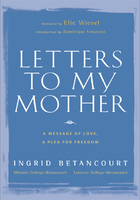There was still a police picket on the Stouch road, but as residents of Midwich we passed through promptly, to drive on through a scene which looked much as usual, and reach our cottage without further hindrance.
We had wondered more than once what state of affairs we might find there, but there proved to have been no need for alarm. The cottage was intact, and exactly as we had left it. We went in and resettled ourselves just as we had intended to on the previous day, with no inconvenience except that the milk in the refrigerator had gone off, on account of the cut in the electricity supply. Indeed, within half an hour of returning the happenings of the previous day were beginning to seem unreal; and when we went out and talked to our neighbours we found that for those who had actually been involved the feeling of unreality was even more pronounced.
Nor was that surprising, for, as Mr Zellaby pointed out, their knowledge of the affair was limited to an awareness that they had failed to go to bed one night and had awakened, feeling extremely cold, one morning: the rest was a matter of hearsay. One had to believe that they had during the interval missed a day, for it was improbable that the rest of the world could be collectively mistaken; but, speaking for himself, it had not even been an interesting experience, since the prime requisite of interest was, after all, consciousness. He therefore proposed to disregard the whole matter, and do his best to forget that he had been cheated out of one of the days which he found to be passing, in proper sequence, far too quickly.
Such a dismissal turned out for a time to be surprisingly easy, for it is doubtful whether the affair-even had it not lain beneath the intimidating muzzles of the Official Secrets Act-could at this stage have made a really useful newspaper sensation. As a dish, it had a number of promising aromas, but it proved short on substance. There were, in all, eleven casualties, and something might have been made of them, but even they lacked the details to excite a blasé readership, and the stories of the survivors were woefully undramatic, for they had nothing to tell but their recollections of a cold awakening.
We were able, therefore, to assess our losses, dress our wounds, and generally readjust ourselves from the experience which afterwards became known as the Dayout, with a quite unexpected degree of privacy.
Of our eleven fatalities: Mr William Trunk, a farm-hand, his wife, and their small son, had perished when their cottage burnt down. An elderly couple called Stagfield had been lost in the other house that caught fire. Another farm-hand, Herbert Flagg, had been discovered dead from exposure in close, and not easily explained, proximity to the cottage occupied by Mrs Harriman, whose husband was at work in his bakery at the time. Harry Crankhart, one of the two men whom the Oppley church-tower observers had been able to see lying in front of the Scythe and Stone had also been found dead from exposure. The other four were all elderly persons in whom neither the sulfas nor the mycetes had been able to check the progress of pneumonia.
Mr Leebody preached a thanksgiving sermon on behalf of the rest of us at an unusually well-attended service the following Sunday, and with that, and his conduct of the last of the funerals, the dream-like quality of the whole affair became established.
It is true that for a week or so there were a few soldiers about, and there was quite a deal of coming and going in official cars, but the centre of this interest did not he within the village itself, and so disturbed it little. The visible focus of attention was close to the Abbey ruins where a guard was posted to protect a large dent in the ground which certainly looked as if something massive had rested there for a while. Engineers had measured this phenomenon, made sketches, and taken photographs of it. Technicians of various kinds had then tramped back and forth across it, carrying mine-detectors, geiger-counters, and other subtle gear. Then, abruptly, the military lost all interest in it, and withdrew.
Investigations at The Grange went on a little longer, and among those occupied with them was Bernard Westcott. He dropped in to see us several times, but he told us nothing of what was going on, and we asked no details. We knew no more than the rest of the village did-that there was a security check in progress. Not until the evening of the day it was finished, and after he had announced his departure for London the following day, did he speak much of the Dayout and its consequences. Then, following a lull in conversation, he said:
'I've got a proposition to make to you two. If you'd care to hear it.'
'Let's hear it and see,' I told him.
'Essentially it is this: we feel that it is rather important for us to keep an eye on this village for a time, and know what goes on here. We could introduce one of our own men to help keep us posted, but there are points against that. For one thing, he would have to start from scratch; and it takes time for any stranger to work into the life of any village, and, for another, it is doubtful whether we could justify the detachment of a good man to full-time work here at present-and if he were not full-time it is equally doubtful whether he could be of much use. If, on the other hand, we could get someone reliable who already knows the place and the people to keep us posted on possible developments it would be more satisfactory all round. What do you think?'
I considered for a moment.
'Not, at first hearing, very much,' I told him. 'It rather depends, I suppose, what is involved.' I glanced across at Janet. She said, somewhat coldly:
'It rather sounds as if we are being invited to spy on our friends, and neighbours. I think perhaps a professional spy might suit you better.'
'This,' I backed her up, 'is our home.'
He nodded, rather as if that were what he had expected.
'You consider yourselves a part of this community?' he said.
'We are trying to be, and, I think, beginning to be,' I told him.
He nodded again. 'Good-At least, good if you feel that you have begun to have an obligation towards it. That's what's needed. It can well do with someone who has its welfare at heart to keep an eye on it.'
'I don't see quite why. It seems to have got along very well without for a number of centuries… or, at least, should I say that the attentions of its own inhabitants have served it well enough.'
'Yes,' he admitted. 'True enough-until now. Now, however, it needs, and is getting, some outside protection. It seems to me that the best chance of giving it that protection depends quite largely on our having adequate information on what goes on inside it.'
'What sort of protection?-and from what?'
'Chiefly, at present, from busybodies,' he said. 'My dear fellow, surely you don't think it was an accident that the Midwich Dayout wasn't splashed across the papers on the Dayout? Or that there wasn't a rush of journalists of all kinds pestering the life out of everyone here the moment it lifted?'
'Of course not,' I said. 'Naturally I knew there was the security angle-you told me as much yourself-and I was not surprised at that. I don't know what goes on at The Grange, but I do know it is very hush.'
'It wasn't simply The Grange that was put to sleep,' he pointed out. 'It was everything for a mile around.'
'But it included The Grange. That must have been the focal point. Quite possibly the influence, whatever it is, doesn't have less than that range-or perhaps the people, whoever they were, thought it safer to have that much elbow room for safety.'
'That's what the village thinks?' he asked.
'Most of it-with a few variations.'
'That's the sort of thing I want to know. They all pin it on The Grange, do they?'
'Naturally. What other reason could there be-in Midwich?'
'Well then, suppose I tell you I have reason to believe that The Grange had nothing whatever to do with it. And that our very careful investigations do no more than confirm that?'
'But that would make nonsense of the whole thing,' I protested.
'Surely not-not, that is, any more than any accident can be regarded as a form of nonsense.'
'Accident? You mean a forced landing?'
Bernard shrugged. 'That I can't tell you. It's possible that the accident lay more in the fact that The Grange happened to be located where the landing was made. But my point is this: almost everyone in this village has been exposed to a curious and quite unfamiliar phenomenon. And now you, and all the rest of the place, are assuming it is over and finished with. Why?'
Both Janet and I stared at him.
'Well,' she said, 'it's come, and it's gone, so why not?'
'And it simply came, and did nothing, and went away again, and had no effect on anything?'
'I don't know. No visible effect-beyond the casualties, of course, and they mercifully can't have known anything about it,' Janet replied.
'No visible effect,' he repeated. 'That means rather little nowadays, doesn't it? You can, for instance, have quite a serious dose of X-rays, gamma-rays, and others, without immediate visible effect. You needn't be alarmed, it is just an instance. If any of them had been present we should have detected them. They were not. But something that we were unable to detect was present. Something quite unknown to us that is capable of inducing-let's call it artificial sleep. Now, that is a very remarkable phenomenon-quite inexplicable to us, and not a little alarming. Do you really think one is justified in airily assuming that such a peculiar incident can just happen and then cease to happen, and have no effect? It may be so, of course, it may have no more effect than an aspirin tablet; but surely one should keep an eye on things to see whether that is so or not?'
Janet weakened a little.
'You mean, you want us, or someone, to do that for you. To watch for, and note, any effects?'
'What I'm after is a reliable source of information on Midwich as a whole. I want to be kept posted and up to date on how things are here so that if it should become necessary to take any steps I shall be aware of the circumstances, and be better able to take them in good time.'
'Now you're making it sound like a kind of welfare work,' Janet said.
'In a way, that's what it is. I want a regular report on Midwich's state of health, mind, and morale so that I can keep a fatherly eye on it. There's no question of spying. I want it so that I can act for Midwich's benefit, should it be necessary.'
Janet looked at him steadily for a moment.
'Just what are you expecting to happen here, Bernard?' she asked.
'Would I have to make this suggestion to you if I knew?' he countered. 'I'm taking precautions. We don't know what this thing is, or does. We can't slap on a quarantine order without evidence. But we can watch for evidence. At least, you can. So what do you say?'
'I'm not sure,' I told him. 'Give us a day or two to think it over, and I'll let you know.'
'Good,' he said. And we went on to talk of other things.
Janet and I discussed the matter several times in the next few days. Her attitude had modified considerably.
'He's got something up his sleeve, I'm sure,' she said. 'But what?'
I did not know. And:
'It isn't as if we were being asked to watch a particular person, is it?'
I agree that it was not. And:
'It wouldn't be really different in principle from what a Medical Officer of Health does, would it?'
Not very different, I thought. And:
'If we don't do it for him, he'd have to find someone else to do it. I don't really see who he'd get, in the village. It wouldn't be very nice, or efficient, if he did have to introduce a stranger, would it?'
I supposed not.
So, mindful of Miss Ogle's strategic situation in the post office, I wrote, instead of telephoning, to Bernard telling him that we thought we saw our way clear to cooperation provided we could be satisfied over one or two details, and received a reply suggesting that we should arrange a meeting when we next came to London. The letter showed no feeling of urgency, and merely asked us to keep our eyes open in the meantime.
We did. But there was little for them to perceive. A fortnight after the Dayout, only very small rumples remained in Midwich's placidity.
The small minority who felt that Security had cheated them of national fame and pictures in the newspapers had become resigned: the rest were glad that the interruption of their ways had been no greater. Another division of local opinion concerned The Grange and its occupants. One school held that the place must have some connexion with the event, and but for its mysterious activities the phenomenon would never have visited Midwich. The other considered its influence as something of a blessing.
Mr Arthur Crimm, O.B.E., the Director of the Station, was the tenant of one of Zellaby's cottages, and Zellaby, encountering him one day, expressed the majority view that the village was indebted to the researchers.
'But for your presence, and the consequent Security interest,' he said, 'we should without doubt have suffered a visitation far worse than that of the Dayout. Our privacy would have been ravaged, our susceptibilities outraged by the three modern Furies, the awful sisterhood of the printed Word, the recorded word, and the picture. So, against your inconveniences, which I am sure have been considerable, you can at least set our gratitude that the Midwich way of life has been preserved, largely intact.'
Miss Polly Rushton, almost the only visitor to the district to be involved, concluded her holiday with her uncle and aunt, and returned home to London. Alan Hughes found himself, to his disgust, not only inexplicably posted to the north of Scotland, but also listed for release several weeks later than he had expected, and was spending much of his time up there in documentary argument with his regimental record office, and most of the rest of it, seemingly, in correspondence with Miss Zellaby. Mrs Harriman, the baker's wife, after thinking up a series of not very convincing circumstances which could have led to the discovery of Herbert Flagg's body in her front garden, had taken refuge in attack and was belabouring her husband with the whole of his known and suspected past. Almost everyone else went on as usual.
Thus, in three weeks the affair was nearly an historical incident. Even the new tombstones that marked it might-or, at any rate, quite half of them might-have been expected so to stand in a short time, from natural causes. The only newly created widow, Mrs Crankhart, rallied well, and showed no intention of letting her state depress her, nor indeed harden.
Midwich had, in fact, simply twitched-curiously, perhaps, but only very slightly-for the third or fourth time in its thousand-year doze.
***
And now I come to a technical difficulty, for this, as I have explained, is not my story; it is Midwich's story. If I were to set down my information in the order it came to me I should be flitting back and forth in the account, producing an almost incomprehensible hotchpotch of incidents out of order, and effects preceding causes. Therefore it is necessary that I rearrange my information, disregarding entirely the dates and times when I acquired it, and put it into chronological order. If this method of approach should result in the suggestion of uncanny perception, or disquieting multi-science, in the writer, the reader must bear with it the assurance that it is entirely the product of hindsight.
It was, for instance, not current observation, but later inquiry which revealed that a little while after the village had seemingly returned to normal there began to be small swirls of localized uneasiness in its corporative peace; certain disquiets that were, as yet, isolated and unacknowledged. This would be somewhere about late November, even early December-though perhaps in some quarters slightly earlier. Approximately, that is, about the time that Miss Ferrelyn Zellaby mentioned in the course of her almost daily correspondence with Mr Hughes that a tenuous suspicion had perturbingly solidified.
In what appears to have been a not very coherent letter, she explained-or, perhaps one should say, intimated-that she did not see how it could be, and, in fact, according to all she had learnt, it couldn't be, so she did not understand it at all, but the fact was that, in some mysterious way, she seemed to have started a baby-well, actually 'seemed' wasn't quite the right word because she was pretty sure about it, really. So did he think he could manage a weekend leave, because one did rather feel that it was the sort of thing that needed some talking over…?














